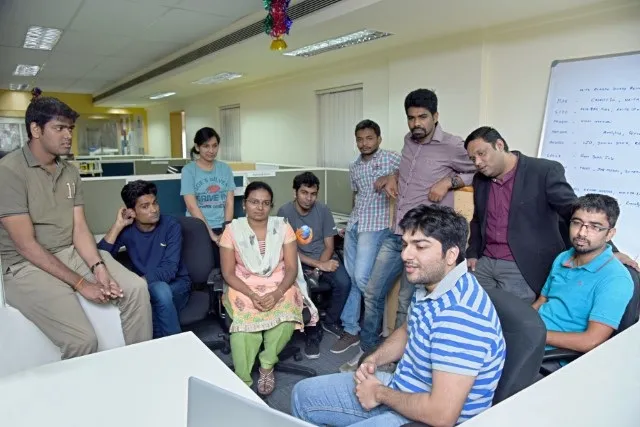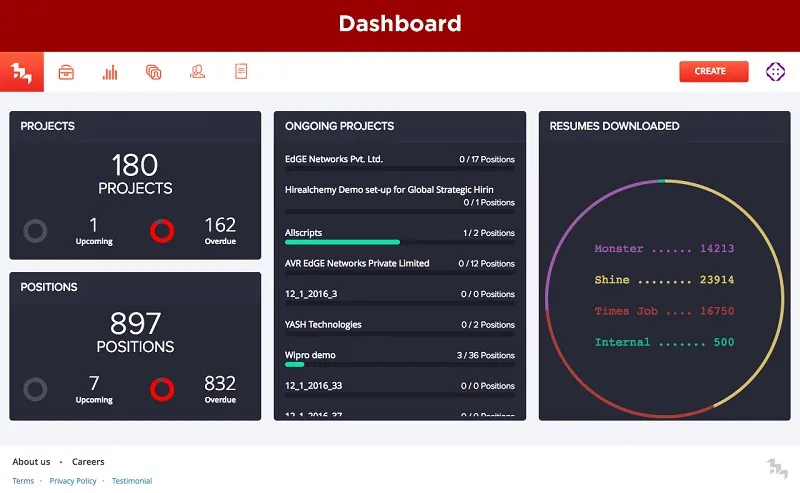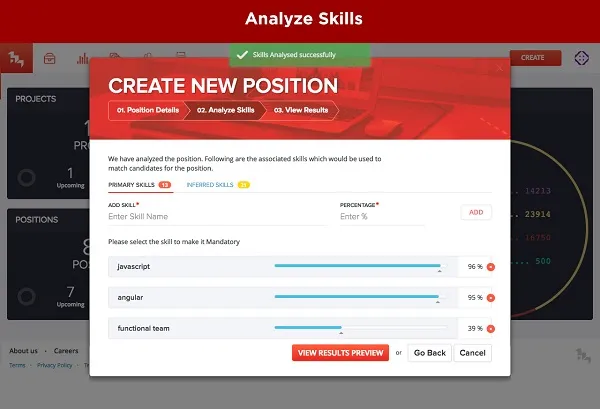Meet the man who is helping multinationals like Dell and Wipro save millions a day
Arjun Pratap (40) admits to having no background in HR whatsoever. This may come as a bit of a surprise to people who know what he does successfully now.

But before that, Arjun worked in the music sector; the content delivery space, with Speedera Networks (later bought by Akamai Technologies), as well as e-learning. He then chose to start on his own, in the digital education space. However, challenges of partnering with universities and high churn rates caused him to lose his team and eventually shut shop.
But, as they say, when you can’t connect the dots looking forward, you can only connect them while looking backwards. And Arjun did just that. After giving it much thought, in October 2013, he sprung back with an automated, artificial intelligence (AI) platform, helping firms with quick talent acquisition as well as workforce optimisation solutions. He says,
While building my business, hiring was always seen as a challenge, especially the unattended piles and volumes of resumes. At that point, out of personal experience, I actively asked myself, 'what if my candidate or potential lies in those unattended volumes'.
Today, his HR automation platform HireAlchemy (under its parent brand EdGE Networks) is an active part of the recruitment process for five multinationals firms in India, including names like Wipro, HCL, Dell and Microland etc.
So, how does it work?

Before understanding how the platform works for talent acquisition, one needs to understand the process of talent sourcing in the Indian market.
Unlike the markets in the US, the Indian market outsources the sourcing of resumes. These ‘sourcing agents’ sit on job websites like Naukri or Monster, and fire a Boolean query. Say, to find a Java developer here, the sourcing agent receives thousands of resumes and profiles which are downloaded and dumped on to the recruiter. However, the process still remains inefficient, owing to the high volumes of resumes which recruiters have to go through.
Another big gap is that these sourcing agents have little or no understanding of nuance that recruiters seek.
But for Arjun, the art lay in creating the right query.
HireAlchemy automates the process, end to end, by reading the complete job description through natural-linguistic programming, and automatically creating the right query, filtering through multiple parameters.
On finding the matches, the platform goes further to read the resumes, rank them and create scores based on the parameters met. Further, the scoring helps recruiters understand better and equips them to question candidates on the missing parameters.
In the final stage of the process, the platform automatically sends e-mails to the shortlisted candidates, tracking it to gauge the interest of the individual. If the mail is ignored or unopened, the recruiter knows that the job doesn’t appeal to the candidate.
According to the founder, this process will soon to be done over the phone, where candidates can also be called to seek their interest for the opening.

Smart ‘workforce’ manager
But that’s not where the majority of the revenues come from for the business. Arjun tells us that their internal resource management tool contributes 85-90 percent of their revenue.
In a normal scenario, IT businesses lose a major chunk of their costs to benched employees, while being unable to allocate a resource for a requirement in due time. On an average, it takes close to 15-16 days for multinationals to allocate a resource internally, hence losing out almost $800,000- 1.5 million to their customers everyday.
HireAlchemy platform reads an employee’s structured data, including certification, roles and skill training information, as well as unstructured data, including work experience summary, targets achieved and appraisal summaries, to find the right match for a requirement internally.
Arjun claims that the platform helps its clients allocate the right resource to shops or projects within 8-9 days, saving millions in the process.
On a larger front, this reading and curation of data also equips the platform to predict trends in hiring for not just job portals (like Monster or Naukri) but also for their clients internally.

Where’s the moolah?
The firm charges its customers based of the number of profiles and job descriptions scanned. The founder tells us that for talent acquisitions, the platform scans 40,000 -50,000 job descriptions, followed by 1,500-2,000 profiles monthly. While internally this number multiplies to 20,000 job descriptions and 150,000 profile scans for internal resource allocation.
According to the founder, the average ticket size for the firm is anywhere between $200,000 and $500,000. By May this year, the firm is looking to close its Series-A funding from a mix of Indian and US-based investors. The startup is also looking to kickstart its operations in London, Canada and Silicon Valley in the coming six months.

AI a reality in India?
If we look at Silicon Valley, AI seems to be the hottest sector in town. According to Markets&Markets, AI is touted to become a $5.05-billion market by 2020, while growing at CAGR of 53.65 percent (2015 onwards). Maybe that’s why Indian deep learning and machine learning startups like HyperVerge and SnapShoppr are making their way to the Valley.
With giants like Google and IBM (through Watson) already having forayed into the domain, the Indian software market is also not behind with TCS launching Ignio last June, Wipro launching its cognitive computing system Holmes, and Infosys launching the AiKiDo project.
But India still needs to understand the true essence of AI. Automating tasks (or repetitive patterns) through just sifting data, is no less than just plain automation (added to analytics or big data). This doesn’t qualify as real AI, with the core of the technology lying in imitating human intelligence alongside intuition.
Website: www.edgenetworks.in







